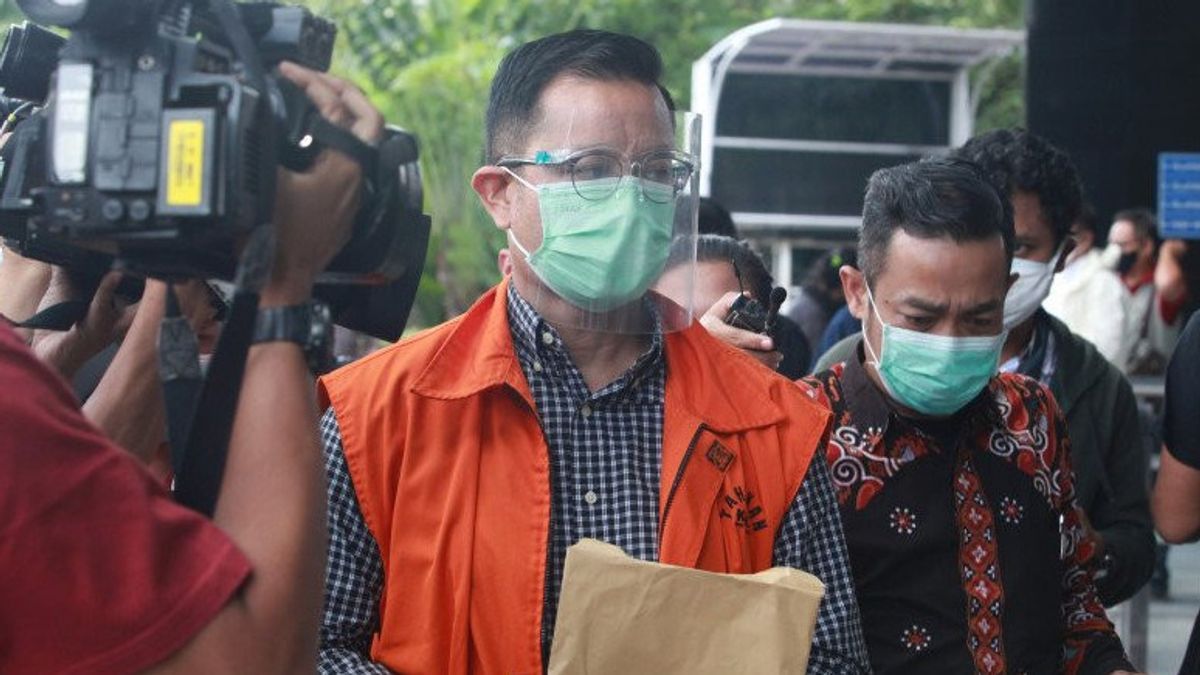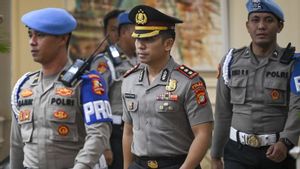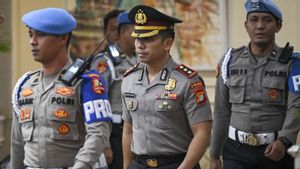JAKARTA - Indonesia Coruption Watch (ICW) assesses that the Corruption Eradication Commission (KPK) is reluctant to take firm action against perpetrators of corruption in social assistance (bansos) COVID-19. This assessment comes after the former Minister of Social Affairs Juliari Batubara was only sentenced to 11 years in prison.
In addition, the former PDI-P politician was subject to a fine of Rp. 500 million, a subsidiary of 6 months, with an additional penalty of Rp. 14.5 billion.
"The lightness of the demands further illustrates the reluctance of the KPK to take firm action against the perpetrators of the social assistance corruption case," said ICW researcher Kurnia Ramadhana in a written statement to reporters, Thursday, July 29.
He also stated that the demands put forward by the KPK Public Prosecutor (JPU) also seemed odd and suspicious. The reason is that the article on which the prosecution is based, namely Article 12 letter b of the Corruption Eradication Law, actually accommodates a life imprisonment and a fine of Rp. 1 billion.
Likewise with additional criminal penalties in the form of replacement money. Kurnia said, this was unsatisfactory considering that the amount was less than 50 percent of the total bribes Juliari received.
In the end, ICW considered that this low demand was not in accordance with the spirit of eradicating corruption and the statement of the KPK leadership. "This low demand contradicts the spirit of eradicating corruption. In fact, the KPK leadership has boasted that it will severely punish the COVID-19 social assistance corruptors," said Kurnia.
Furthermore, ICW emphasizes that law enforcers are representatives of the state and victims who are tasked with holding accountable the perpetrators of crimes. However, this was not carried out by the anti-corruption commission.
"Instead of being carried out, the KPK looks more like a representative of the perpetrators who are trying their best so that the defendant is given a low sentence," said Kurnia.
Thus, he asked the judge to take steps to impose a maximum sentence of life imprisonment if he saw the low demands of the KPK prosecutors against Juliari. Moreover, this maximum sentence should have been carried out considering that many people have become victims because their rights have been violated due to the abusive practice carried out by Juliari and other perpetrators.
"In the future, the maximum verdict is expected to be able to prevent the potential for similar cases from occurring, especially in the midst of a pandemic," he said.
It is known that KPK Chairman Firli Bahuri once boasted that Juliari Batubara could face the death penalty. This threat can be given in accordance with Law Number 31 of 1999 Article 2 which states that acts of corruption committed under certain circumstances can result in the death penalty being imposed.
However, the Acting Spokesperson for the KPK for Enforcement, Ali Fikri, said the articles used by the prosecutor were in accordance with the facts obtained by the anti-corruption commission.
"We need to reiterate that in this case the defendant is charged with the bribery article, not Article 2 Paragraph (2) of the Anti-Corruption Law. The application of the article is of course based on the facts obtained from the results of the investigation," Acting KPK Spokesperson for Enforcement Affairs Ali Fikri told reporters, Thursday, July 29.
In addition, continued Ali Fikri, this claim was also based on aggravating and mitigating reasons at trial. So that there is no opinion, desire, or pressure from any party that can influence the demands put forward by the KPK Public Prosecutor (JPU).
The English, Chinese, Japanese, Arabic, and French versions are automatically generated by the AI. So there may still be inaccuracies in translating, please always see Indonesian as our main language. (system supported by DigitalSiber.id)













